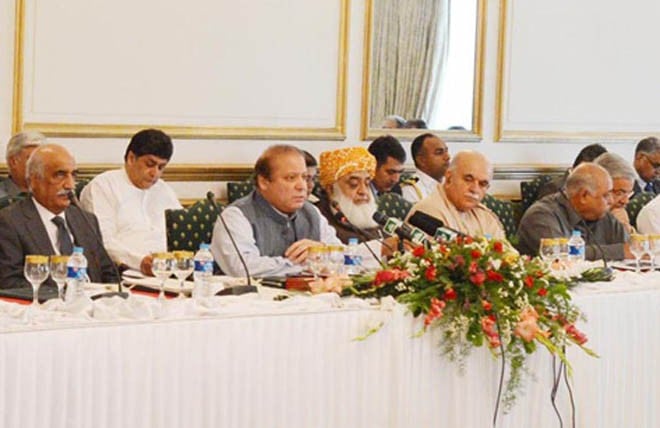
Political parties believe there is need for constructive criticism and input to make CPEC beneficial to the people of Pakistan

Political parties welcome China-Pakistan Economic Corridor (CPEC) for the development and prosperity of the country but they have serious concerns about some aspects, such as the route of the corridor, viability, transparency and execution of this project.
Since the beginning of CPEC, concerns have been expressed by many political parties. They fear the small provinces might be neglected by the federal government, which may give more CPEC-related benefits to Punjab which is the PML-N’s stronghold.
In the past, Chinese government functionaries have, from time to time, also urged Pakistan’s political parties to join hands for the success of CPEC and to benefit from this "shared goal of development".
A recent report in the print media, disclosing the master plan of CPEC and Chinese priorities and agreements with the Pakistani government, revealed that thousands of acres of agricultural land will be leased out to Chinese enterprises to set up "demonstration projects" in areas ranging from seed varieties to irrigation technology, among other projects.
However, the ruling regime never shared these plans, agreements, and deals with the local media, political parties, and the public at large.
"We welcome CPEC as a great project in Pakistan. No political party can negate its importance and impact," says Shafqat Mehmood, a senior leader of Pakistan Tehreek-i-Insaf (PTI).
But he points out that there are serious questions about the transparency, execution and implementation strategy of the project.
"The government has kept the negotiations, deals, and loan agreements a secret. Also, there are questions about the viability and price of electricity generated from CPEC energy projects. There are questions about the industry set-up and its local share, job quota, etc," he remarks, adding that his party is raising these concerns on all parliamentary forums.
Aftab Ahmad Khan Sherpao, Chairman Qaumi Watan Party (QWP) says, "We hope all units of federation get equitable benefits and share out of this project."
He adds such mega projects, generally, benefit backward regions of a country. In China, he says, they are focusing on backward areas when it comes to mega projects to bring about economic development. "In Pakistan, we believe the government should prefer backward, smaller, and neglected areas covered by the corridor. For a project like CPEC, peace is vital. We believe there are concerns and issues though about equitable sharing [of benefits], and transparency."
Read also: Editorial
There have been reservations from GB as the province feels deprived of the benefits of CPEC. Many political parties believe GB is not really going to benefit.
There have also been reservations from Gilgit Baltistan(GB) as the province feels deprived of the benefits of CPEC. Many political parties believe GB is not really going to get benefits of this multi-billion dollars project. The Awami Workers Party (AWP) in GB believes CPEC would be viewed only as a colonial enterprise unless basic political rights and self-determination are granted to GB’s long-suffering people.
Senator Taj Haider of the Pakistan Peoples’ Party (PPP), who is also convener of the Senate’s Special Committee on CPEC, says the third report of his committee on CPEC has extensively covered the issue and concerns of GB and the region regarding CPEC. He explains that there is no dispute about the project but the committee, with consensus of representatives of all political parties, continues to give its constructive and positive input regarding the implementation and execution of the project.
Haider believes there is need for constructive criticism and input to make this project smoother, more viable, and beneficial to the people of Pakistan, especially in backward regions. For this, the committee also suggests for improvements to the government from time to time.